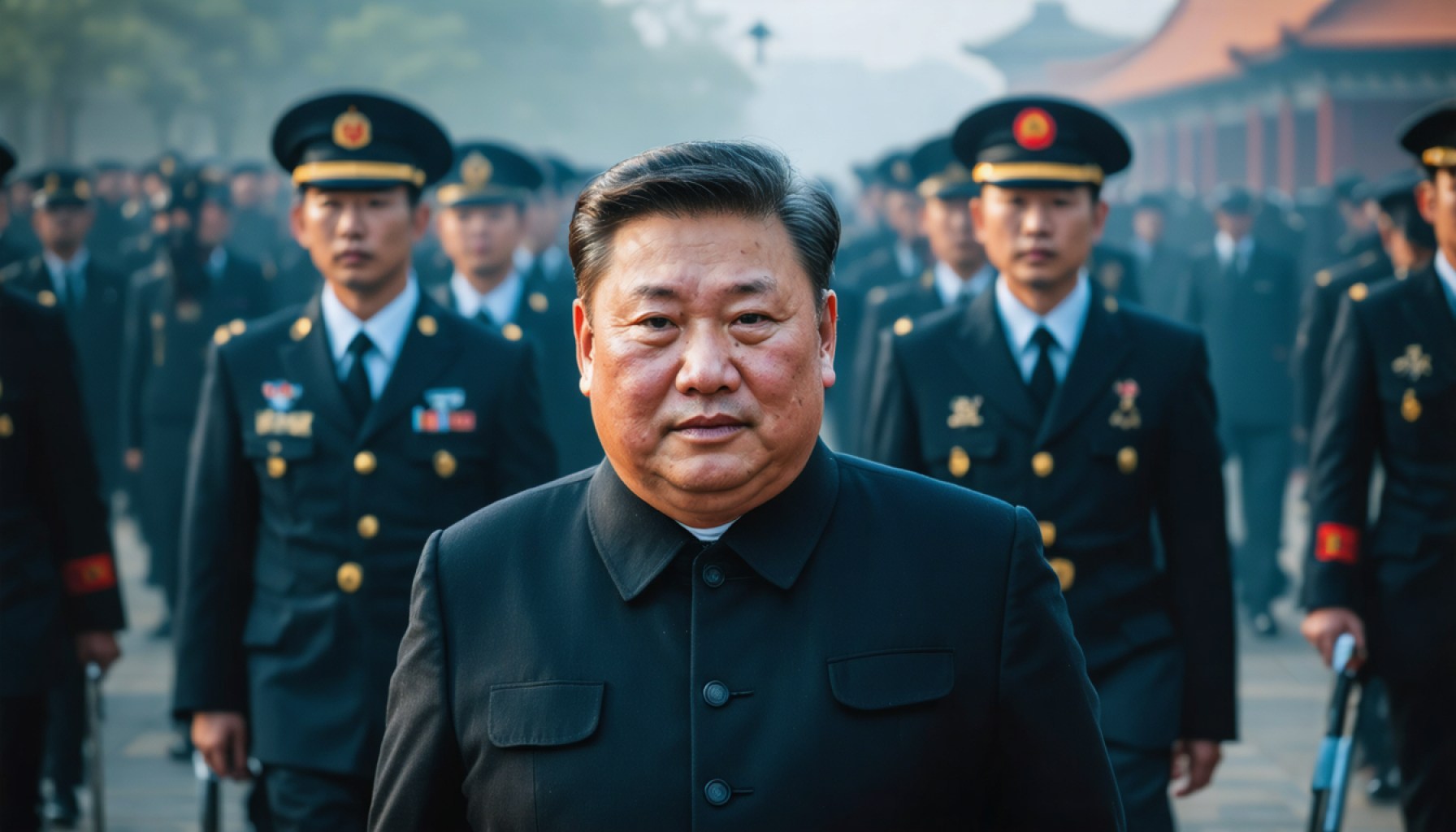- A prominent member of China’s National People’s Congress Standing Committee is under investigation, highlighting Beijing’s strict anti-corruption efforts.
- The official in question, a vice-chairman of the Agriculture and Rural Affairs Committee, has previously held significant positions such as Governor of Jilin Province and Party Secretary of Hubei.
- Allegations include severe violations of discipline, casting doubt on his illustrious political career.
- The investigation illustrates a broader narrative of increased accountability and transparency within China’s political elite.
- This development resonates globally, indicating China’s commitment to ethical governance and integrity in its political system.
- The situation reveals vulnerabilities within individuals and the political structure, amidst efforts to maintain public trust.
A storm brews over China’s political landscape as a high-ranking official faces intense scrutiny. On February 21, the central government’s disciplinary forces revealed an investigation into a prominent member of the National People’s Congress Standing Committee. This development draws renewed attention to Beijing’s stringent campaign against misconduct.
The figure at the center of this maelstrom is an influential vice-chairman of the Agriculture and Rural Affairs Committee. Born in 1957, his political journey climbed impressive heights, including key roles as Governor of Jilin Province and Party Secretary of Hubei. His legacy in these positions hinted at a canny, if not sometimes controversial, navigation through China’s intricate political corridors.
Yet, as beams of suspicion pierce this facade, the state’s resolve to purge corruption takes center stage. Allegations of severe violations of discipline cast a shadow over the meticulously curated reputation of a veteran statesman. The ongoing investigation signals more than potential personal downfall; it underscores a broader narrative of accountability and transparency that the political elite can no longer evade.
The drama captivates not just those within China’s borders but also observers worldwide, who see this as part of a decisive campaign to tighten ethical governance. As the layers unfold, they reveal not only the vulnerabilities of individuals but also a system striving for integrity amid immense complexity. In this unfolding story, the stakes extend beyond individual fate, reflecting a crystallizing resolve to uphold principles amidst an ever-watchful public eye.
China’s Political Crisis: What It Means for Global Governance
Overview of China’s Anti-Corruption Campaign
China’s determined anti-corruption campaign has been a defining element of the country’s political landscape under President Xi Jinping. Initiated in 2012, this campaign aims to root out graft and enhance trust in governance. Here’s a deeper dive into areas not fully addressed in the source article:
How-To Steps & Life Hacks: Understanding China’s Anti-Corruption Measures
1. Whistleblower Channels: The government has established multiple channels for whistleblowers to report corrupt activities, ensuring anonymity and protection for those who come forward.
2. Public Awareness Campaigns: China has implemented educational programs to foster a culture of integrity from an early age, illustrating the societal expectation of transparency.
3. Use of Technology: Advanced data analytics and artificial intelligence leverage massive datasets to detect anomalies indicative of corruption, enhancing investigative efficiency.
Real-World Use Cases
– Public Sector Reform: Since the campaign’s unveiling, multiple high-ranking officials have been prosecuted, signaling to other nations the feasibility of implementing similarly robust anti-corruption frameworks.
– International Relations: China’s emphasis on domestic integrity has also translated into its foreign policy, urging countries engaged in its Belt and Road Initiative to adhere to stringent ethical guidelines.
Market Forecasts & Industry Trends
Experts predict an enduring commitment to anti-corruption in China. The country’s political risk landscape might stabilize as governance becomes more transparent, potentially attracting increased foreign investments.
Reviews & Comparisons
By comparing China’s approach to those of other nations, it emerges that the centralized power structure allows swifter implementation of anti-corruption measures, unlike decentralized systems which may have slower responses due to bureaucratic layers.
Controversies & Limitations
Critics argue that the campaign sometimes veers into political purging under the guise of anti-corruption. Concerns about human rights and the legal fairness of certain detentions remain prevalent among international observers.
Features, Specs & Pricing
In political terms, China’s anti-corruption campaign features:
1. Scope: Comprehensive, targeting “tigers” (high-ranking officials) and “flies” (low-level bureaucrats) alike.
2. Reach: Spanning across all governmental levels and sectors, ensuring no area is immune from scrutiny.
3. Cost: While the direct financial cost is not publicly disclosed, the economic benefit from reducing corruption is deemed substantial.
Security & Sustainability
Prolonged anti-corruption efforts may secure a more stable governance model. However, to sustain this momentum, China must continuously balance strong enforcement with procedural fairness to maintain public confidence.
Insights & Predictions
As China proceeds with its anti-corruption drive, reforms are likely to broaden, encompassing new technologies and international cooperation mechanisms. China’s global influence, particularly in trade and development aid, may increasingly embed anti-corruption stipulations in agreements with partner countries.
Pros & Cons Overview
Pros:
– Enhanced public trust in government.
– Improved efficacy of public services.
– Potential increase in foreign direct investment.
Cons:
– Potential misuse of campaign for political gain.
– Human rights concerns over investigative processes.
– Possible chilling effect on bureaucratic decision-making.
Actionable Recommendations
– For Chinese Officials: Embrace transparency by actively engaging in public communication and reinforcing the legitimacy of actions taken.
– For International Firms: Recognize risks and ensure compliance with local laws, particularly in sectors with high government interaction.
– For Policy Makers Worldwide: Consider China’s model as a case study but tailor anti-corruption measures to fit local contexts, ensuring balance between control and rights.
Related Links
To learn more about China’s governance and global policies, visit Chinese Government Official Portal or United Nations for broader international governance insights.
This comprehensive guide provides clear, actionable insights into understanding the complexities of China’s anti-corruption efforts and their global repercussions.
